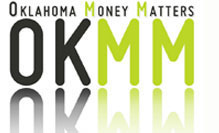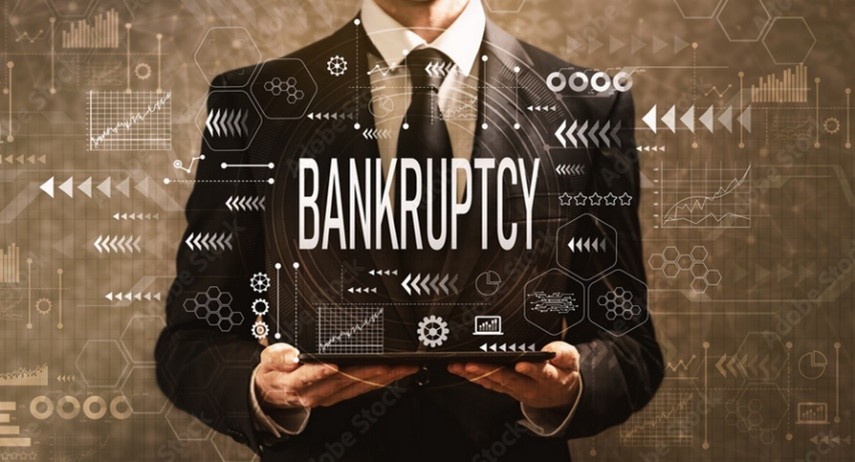Financial Literacy Standards
13. Consequences of Bankruptcy
Bankruptcy is a legal procedure that can offer assistance to individuals who are having difficulty repaying their debts. Depending on the specific type of bankruptcy, consumers may be able to eliminate a portion of their unsecured debt (a loan or credit extended without requiring the borrower to pledge any specific assets, like a house or car, as collateral) or enter into a repayment with more favorable terms.
Bankruptcy halts debt collection calls, legal actions related to debts, and wage garnishment. The process is complex, and it is advisable to consult with an attorney prior to proceeding, but at times it can be a viable solution for those who have exhausted other options to alleviate their debt.
How to know if bankruptcy might be right for you:
- You see no way to pay off your debts within five years
- Your amount of debt is greater than 40% of your income
- You’re paying as much as you can toward your debt, but not making any progress
- Debt payments are preventing you from meeting other financial goals, such as saving for retirement.
Types of Bankruptcy
- Chapter 7, known as “liquidation”, is the fastest and most common form. It’s best for consumers who have primarily unsecured debt, such as medical bills, credit card debt, or personal loans.
- Chapter 13, known as “wage earners” plan, restructures debt into a three to five-year payment plan. Best for those who want to retain their assets.
- Chapter 11, known as a “reorganization” bankruptcy, is typically used by corporations and businesses that want to keep operating.
Section 1: Costs and benefits of bankruptcy
Bankruptcy can offer a path to financial relief for those overwhelmed by debt, but it comes with significant costs and potential benefits. It's often considered a last resort after exploring other debt relief options.
Here's a breakdown of the costs and benefits:
- Potential costs
- Credit Score Impact: Bankruptcy significantly lowers credit scores, which can affect your ability to obtain new loans, credit cards, or even qualify for employment. The record typically remains on credit reports for 7-10 years, depending on the type of bankruptcy.
- Difficulty Obtaining New Credit: Securing loans or credit after bankruptcy can be challenging, and any new credit may come with higher interest rates and less favorable terms.
- Potential Loss of Assets: Chapter 7 bankruptcy may require the sale of non-exempt assets (like a second home, valuable possessions not essential for work or daily living) to repay creditors.
- Attorney and Filing Fees: Filing for bankruptcy involves various costs, including legal fees for attorneys, court filing fees, and fees for mandatory credit counseling courses.
- Public Record: Bankruptcy filings are public record, which could be a factor in some employment or housing applications.
- Not All Debts are Discharged: Certain debts, such as student loans (except in cases of "undue hardship"), alimony, child support, and some taxes, are typically not eliminated in bankruptcy.
- Potential benefits
- Debt Discharge or Restructuring: Bankruptcy can eliminate certain debts, such as credit card debt, medical bills, and personal loans, providing a "fresh start" for individuals and families.
- Automatic Stay: Upon filing, an automatic stay prevents creditors from contacting you, pursuing wage garnishments, lawsuits, and even foreclosures or repossessions, at least temporarily.
- Structured Repayment (Chapter 13): For individuals with a steady income, Chapter 13 bankruptcy allows them to create a repayment plan to pay off a portion of their debts over three to five years while potentially keeping assets, such as a home.
- Reduced Stress: The initial relief from creditor harassment and the possibility of discharging debts can significantly reduce financial stress and anxiety for individuals facing overwhelming debt.
Section 2: Ways to avoid bankruptcy and identify alternatives
When facing overwhelming debt, it's crucial to explore all possible options before considering bankruptcy, which can carry significant long-term consequences for your financial standing. There are several alternatives that can help you manage your debt and avoid bankruptcy, including:
- Budget management
- Create and stick to a budget: Detail your income and expenses to identify where your money is going and where you can cut back on spending. Use the personal budgeting tool found at OklahomaMoneyMatters.org.
- Reduce non-essential expenses: Cut out unnecessary spending, such as dining out, subscriptions, and entertainment, and reallocate those funds towards paying down your debt.
- Increase your income: Consider taking on a part-time job, freelance work, or monetizing a hobby to generate extra income to dedicate to debt repayment.
- Sell unnecessary assets: Selling non-essential assets like vehicles, jewelry, or collectibles can provide a lump sum to pay off debts.
- Debt management
- Negotiate with creditors: Contact your creditors to explain your financial difficulties and request lower interest rates, extended payment terms, or even partial debt forgiveness. Many creditors are willing to work with you to avoid a total loss.
- Debt Consolidation: Combine multiple debts into a single loan with a potentially lower interest rate and a fixed monthly payment.
- Home Equity Loans: If you have equity in your home, you can borrow against it at a potentially lower interest rate. Using your home as collateral carries the risk of foreclosure if you fail to make payments.
- Balance Transfer Credit Cards: Offer an introductory 0% annual percentage rate for a limited time, allowing you to transfer and consolidate other credit card balances, saving on interest during the promotional period.
- Debt Management Plans: Work with a non-profit credit counseling agency to create a repayment plan to pay back your creditors over time. The agency helps negotiate lower interest rates or fees, and you make one monthly payment to the agency, which distributes the funds to your creditors. Contact GreenPath Financial Wellness (1-866-476-0261) for assistance.
- Debt Settlement: Negotiate with creditors to pay a reduced amount than what is owed to satisfy the debt. This can be done independently or with the assistance of a debt settlement company.
- Debt Forgiveness: This happens when a lender forgives or erases some or all of your debt. The process of requesting debt forgiveness can be done by contacting your creditor.
- Financial counseling
- Seek professional guidance: A credit counseling agency can provide personalized advice, help you create a budget, develop a debt repayment plan, and potentially negotiate with your creditors. They can help determine if bankruptcy is necessary or if alternatives like debt management or settlement might be more suitable. Contact GreenPath Financial Wellness (1-866-476-0261) for assistance.
- Pre-bankruptcy credit counseling: Even if you decide to file for bankruptcy, it's often a legal requirement to complete a credit counseling course within 180 days before filing your petition.
- Refinancing
- Refinance your mortgage: If you own a home, exploring mortgage refinancing options can help lower your monthly payments, freeing up funds to address other debts.
- Cash-out refinance: Obtain a new loan for more than you owe and receive the difference in cash to pay off other debts.
- Loan modification: Adjust loan terms to make payments more manageable and potentially avoid foreclosure.
- Important considerations
- Understand the risks: Debt consolidation and settlement can impact your credit score, and some options, like home equity loans, carry the risk of losing your collateral if you default.
- Be cautious of debt relief scams: Exercise caution when dealing with for-profit debt settlement companies, as many have questionable practices and may charge high fees without guaranteeing results.
- Seek legal counsel: If you're considering bankruptcy, consult with a bankruptcy attorney to understand your options and legal rights.
Section 3:Importance of reestablishing a positive credit history
Bankruptcy can significantly lower your credit score and remain on your credit report for several years. However, it also offers a chance to get a fresh start and rebuild your financial future. Reestablishing a positive credit history is crucial for improving your credit score and accessing essential financial products and services in the future, such as mortgages, loans, and credit cards with favorable terms.
Recommended steps for improving your credit score after bankruptcy:
- Check your credit reports regularly and dispute errors: Bankruptcy should be accurately reported on your credit reports. Ensure that discharged debts are marked as such and that all information is correct. You can dispute inaccurate information directly with the credit bureaus (Equifax, Experian, and TransUnion) or the original creditor that supplied the information.
- Make timely payments on remaining debts and bills: Payment history is the most crucial factor in your credit score, accounting for 35% of your FICO (Fair Isaac COrporation) score calculation. If you have debts that were not discharged in bankruptcy, prioritize making all of those payments on time.
- Apply for a secured credit card or credit-builder loan: These are designed to help individuals with limited or damaged credit establish a positive payment history.
- Secured Credit Cards: These cards require a security deposit that acts as collateral, making them easier to obtain after bankruptcy. Use the card for small, manageable purchases and pay the balance in full each month to build a positive payment history.
- Credit-Builder Loans: With this type of loan, the funds are placed in a secured account while you make regular payments. Once the loan is paid off, you receive the funds, and the payments are reported to credit bureaus, building your credit history.
- Keep your credit utilization rate low: Credit utilization refers to the amount of credit you're using compared to your total available credit. Aim to keep your utilization rate below 30%, which is considered a healthy range by experts.
- Become an authorized user on someone else's credit card: If a trusted friend or family member has a credit card with a good payment history and low utilization, they can add you as an authorized user. This can benefit your credit score by adding the account's history to your credit report. However, remember that the primary cardholder is responsible for the debt, so choose someone trustworthy.
- Seek guidance from credit counseling agencies: Non-profit credit counseling agencies can provide budgeting advice and help you develop strategies to rebuild your credit.
- Be patient and persistent: Rebuilding credit after bankruptcy takes time, but with consistent effort and responsible financial habits, you can see significant improvement in your credit score within a couple of years.



